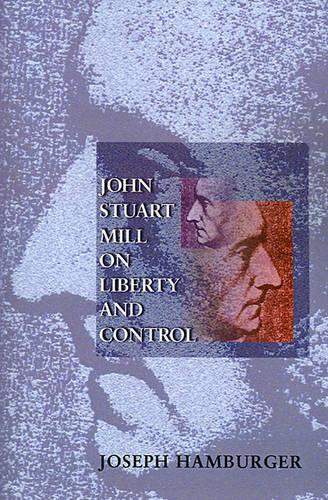
John Stuart Mill on Liberty and Control
(Paperback)
Publishing Details
John Stuart Mill on Liberty and Control
By (Author) Joseph Hamburger
Princeton University Press
Princeton University Press
18th September 2001
United States
Classifications
Professional and Scholarly
Non Fiction
Centrist democratic ideologies and movements
320.01
Short-listed for Choice Magazine Outstanding Reference/Academic Book Award 2000
Physical Properties
Paperback
264
Width 152mm, Height 235mm
369g
Description
John Stuart Mill is one of the hallowed figures of the liberal tradition, revered for his defense of liberal principles and expansive personal liberty. By examining Mill's arguments in On Liberty in light of his other writings, however, Joseph Hamburger reveals a Mill very different from the "saint of rationalism" so central to liberal thought. He shows that Mill, far from being an advocate of a maximum degree of liberty, was an advocate of liberty and control--indeed a degree of control ultimately incompatible with liberal ideals. Hamburger offers this powerful challenge to conventional scholarship by presenting Mill's views on liberty in the context of his ideas about, in particular, religion and historical development. The book draws on the whole range of Mill's philosophical writings and on his correspondence with, among others, Harriet Taylor Mill, Auguste Comte, and Alexander Bain to show that Mill's underlying goal was to replace the traditional religious basis of society with a form of secular religion that would rest on moral authority, individual restraint, and social control.Hamburger argues that Mill was not self-contradictory in thus championing both control and liberty. Rather, liberty and control worked together in Mill's thought as part of a balanced, coherent program of social and moral reform that was neither liberal nor authoritarian. Based on a lifetime's study of nineteenth-century political thought, this clearly written and forcefully argued book is a major reinterpretation of Mill's ideas and intellectual legacy.
Reviews
One of Choice's Outstanding Academic Titles for 2000 "A clear, well-documented, and persuasive book... At stake is nothing less than a recasting of the role of Mill's philosophy in relationship to liberalism."--Choice "In this final publication Hamburger has left a challenging scholarly legacy that deserves inclusion in all future discussions of John Stuart Mill and twentieth-century liberalism."--Joseph Farry, Perspectives on Political Science "Clear, well-documented, and persuasive."--Choice
Author Bio
Joseph Hamburger taught at Yale University from 1957 until his death in 1997. At the time of his death, he was Pelatiah Perit Professor of Political and Social Science. The author of books on James and John Stuart Mill. John Austin, and Thomas Macaulay, Professor Hamburger spent a lifetime studying political theory and nineteenth-century intellectual history
